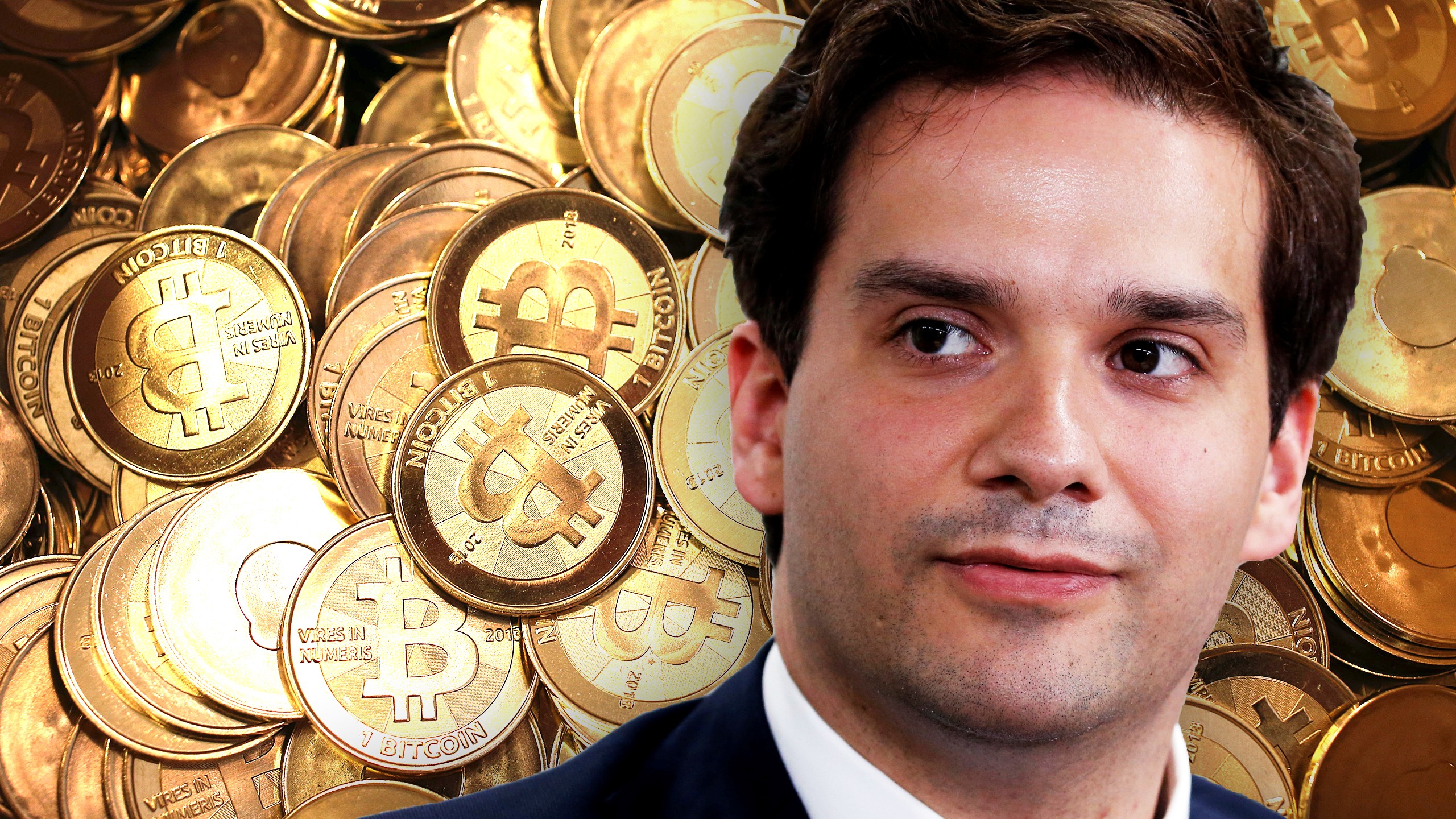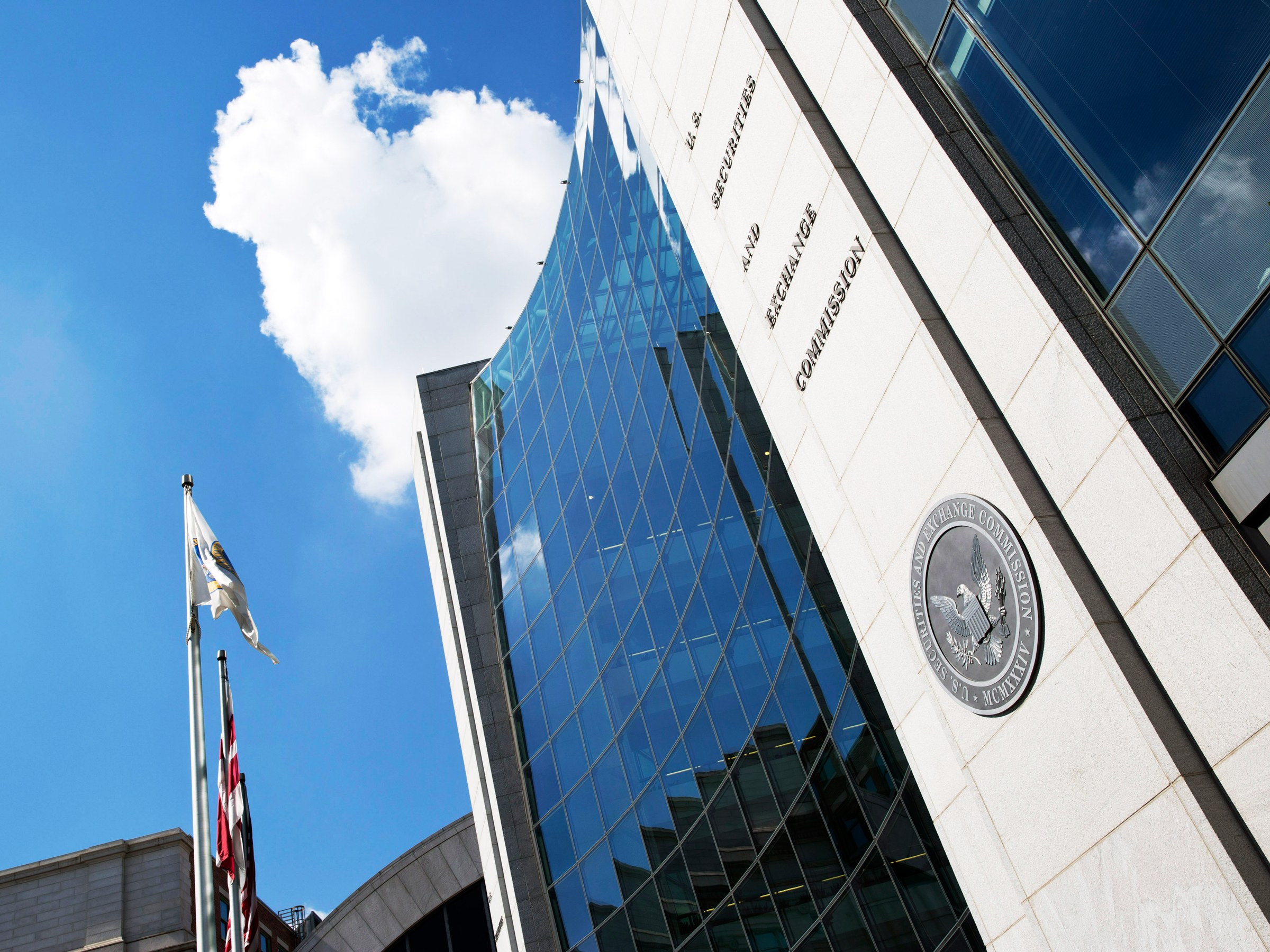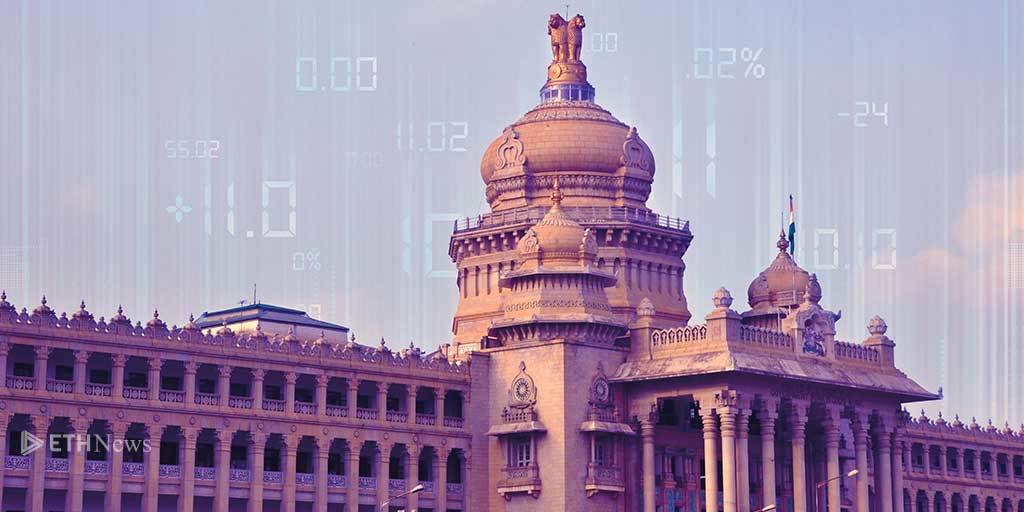 Cryptocurrencies and blockchain technology have excited early adopters and fintech companies for several years. It’s also led to much speculation about a cryptocurrency “bubble”, increased concerns about recent fraud and longer-term questions about security. Our cryptocurrency news update includes the latest on digital currency fraud, security issues and regulatory efforts around the world. Warning! Speed bumps ahead.
Cryptocurrencies and blockchain technology have excited early adopters and fintech companies for several years. It’s also led to much speculation about a cryptocurrency “bubble”, increased concerns about recent fraud and longer-term questions about security. Our cryptocurrency news update includes the latest on digital currency fraud, security issues and regulatory efforts around the world. Warning! Speed bumps ahead.
Have Greek authorities and US officials captured the infamous Russian billion-dollar bitcoin launderer Alexander Vinnik? Seems so, as the US negotiates to extradite him to the US. A group of Asian investors and entrepreneurs seem intent on creating a new bitcoin currency called Bitcoin Cash to launch next week.
 Bank of America Managing Director Francisco Blanch says bit coding needs to be regulated in order to gain mainstream acceptance and confidence in the security of the digital currency. British bitcoin fraudster Renwick Haddow, accused of bilking investors of $5 million in the fraudulent New York Bitcoin Store was arrested in Morocco.
Bank of America Managing Director Francisco Blanch says bit coding needs to be regulated in order to gain mainstream acceptance and confidence in the security of the digital currency. British bitcoin fraudster Renwick Haddow, accused of bilking investors of $5 million in the fraudulent New York Bitcoin Store was arrested in Morocco.
Many cryptocurrency companies and investors cheered after the US SEC said ICOs must adhere to and meet all US security regulations. In Washington state, new cryptocurrency regulations mean digital currency exchanges will have to be licensed, maintain a security bond and provide a third-party data systems audit.
 The market capitalization of cryptocurrencies remained above $80 billion, which Ryan Rabaglia, head trader for Octagon Strategy, described as a “resilient” market. Next week, bitcoin faces a potential “hard fork” with a rival split by investors and struggles to scale to meet popularity of the most popular of the digital currencies.
The market capitalization of cryptocurrencies remained above $80 billion, which Ryan Rabaglia, head trader for Octagon Strategy, described as a “resilient” market. Next week, bitcoin faces a potential “hard fork” with a rival split by investors and struggles to scale to meet popularity of the most popular of the digital currencies.
Even with growing security concerns, there are now more than 800 cryptocurrencies or “altcoins” and TheMarketMogul.com profiles seven of them. Howard Marks, Co-chairman of Oaktree Capital, with $99 billion in assets under management, expressed recent concern about investments in cryptocurrency calling them “an unfounded fad.”
 Internet ombudsman Dmitry Marinichev, said Russian cryptocurrency regulations are in development and will build on those of Japan and the US. At the same time, he expressed reservations about the current state of bitcoin for investors. The Reserve Bank of India (RBI) and the Securities and Exchange Board of India (SEBI) are wrestling with differing opinions on how to regulate cryptocurrencies in India. An Israeli court ruled that banks are not obligated to provide financial services for cryptocurrency companies working until laws and anti-money laundering regulations are strongly established.
Internet ombudsman Dmitry Marinichev, said Russian cryptocurrency regulations are in development and will build on those of Japan and the US. At the same time, he expressed reservations about the current state of bitcoin for investors. The Reserve Bank of India (RBI) and the Securities and Exchange Board of India (SEBI) are wrestling with differing opinions on how to regulate cryptocurrencies in India. An Israeli court ruled that banks are not obligated to provide financial services for cryptocurrency companies working until laws and anti-money laundering regulations are strongly established.
The World’s Most Infamous Billion-Dollar Bitcoin Launderer Nabbed At Last?
 Homeland Security Investigations, The Internal Revenue Service-Criminal Investigation Division, and other federal agencies, working together with Greek police, have arrested the alleged mastermind behind a $4 billion money laundering scheme that used bitcoin transactions.
Homeland Security Investigations, The Internal Revenue Service-Criminal Investigation Division, and other federal agencies, working together with Greek police, have arrested the alleged mastermind behind a $4 billion money laundering scheme that used bitcoin transactions.
He is also believed to have played a role in the looting of Mt. Gox, once the world’s largest bitcoin exchange, which went bankrupt in February 2014. The CEO, Mark Karpeles, is currently on trial for embezzlement and other charges in Japan.
The U.S. Department of Justice identified the so-called mastermind as Russian national Alexander Vinnik, age 38. He was arrested in Greece, on a U.S. warrant, with a wide array of electronic equipment which was confiscated.
Vinnik has been accused of laundering billions of dollars since 2011 using bitcoin. The virtual currency was created by the mysterious Satoshi Nakamoto, is difficult to trace, and has reached values of up to $3,000 for a single bitcoin in recent months. Via thedailybeast.com
Some Bitcoin Backers Are Defecting to Create a Rival Currency
 For the last two years, rival factions have been vying for control of the Bitcoin virtual currency and its global network of computers and supporters. Now, one of the main camps is preparing to break off and create a competing version of Bitcoin.
For the last two years, rival factions have been vying for control of the Bitcoin virtual currency and its global network of computers and supporters. Now, one of the main camps is preparing to break off and create a competing version of Bitcoin.
A group of investors and entrepreneurs, most of them based in Asia, have announced a plan to create what they are calling Bitcoin Cash, starting next week.
The plan would seal a divorce between opponents in a long-simmering feud over what Bitcoin should be — and lead to two competing virtual currencies going by the name of Bitcoin. “I actually think it would be a good thing if there is a split,” said Roger Ver, a Tokyo-based investor who voiced his preliminary support for Bitcoin Cash on Tuesday. Via nytimes.com
Bitcoin Should Be Regulated to Go Mainstream: Bank of America Official
 Bank of America Managing Director Francisco Blanch thinks that Bitcoin cannot successfully expand around the world without being subjected to some regulatory guidelines especially with security-related issues.
Bank of America Managing Director Francisco Blanch thinks that Bitcoin cannot successfully expand around the world without being subjected to some regulatory guidelines especially with security-related issues.
He also mentioned that the other factors hindering Bitcoin’s rise are some cases of fraud, hacking and limited market acceptance: “A key step for Bitcoin would be for it to become pledgeable collateral. However, large inherent risks to digital tokens such as fraud, hacking, theft, new protocol adoption, limited acceptance and that it is not legal tender many places in the world make it an unlikely development.”
Blanch’s position is supported by other financial services industry players like Morgan Stanley. However, the efforts by several governments around the world to regulate the digital currencies have been relatively unsuccessful so far. Via cointelegraph.com
Bitcoin Store $5 Mln Fraud ‘Operator’ Haddow Falls to Police in Morocco
 “Clandestine” businessman Renwick Haddow is in police custody as the US moves to arrest another Bitcoin bad actor.
“Clandestine” businessman Renwick Haddow is in police custody as the US moves to arrest another Bitcoin bad actor.
Multiple sources including the UK’s Daily Mail report that Haddow, who allegedly conned investors out of $5 million via a fake exchange platform, was found in the Moroccan capital Tangiers.
“Haddow created two trendy companies and misled investors into believing that highly qualified executives were leading them to quick profitability,” the US Securities and Exchange Commission (SEC) commented after charging Haddow last month with securities fraud. The British-born New York resident is said to have tricked investors who contributed funds to his Bitcoin Store platform and other ventures, diverting funds to offshore accounts. Via cointelegraph.com
What’s Next for Cryptocurrencies After Regulators Weigh In?
 The cryptocurrency world is breathing a sigh of relief after U.S. regulators finally weighed in on initial coin offerings, saying that companies which raise money through the sale of digital assets must adhere to federal securities laws.
The cryptocurrency world is breathing a sigh of relief after U.S. regulators finally weighed in on initial coin offerings, saying that companies which raise money through the sale of digital assets must adhere to federal securities laws.
Prices of many of the more than $1 billion in digital coins already sold this year were little changed as issuers, analysts and attorneys said the Securities and Exchange Commission guidance late yesterday provides some long-sought clarity.
“It’s a step in the right direction for the industry as before yesterday’s announcement, it was common knowledge that ICOs have been enveloped in a regulatory gray area,” said Ron Chernesky, who is in the process of issuing tokens to be used in his trading platform InvestFeed Inc. “One of the most telling pieces in the SEC announcement was an acknowledgment that some ICOs are completely fair investments, and some are not.” Via bloomberg.com
Startups’ Cryptocurrency Fundraising Loophole Gets a Regulatory Reality Check
 Cryptocurrency was invented by people who didn’t much like regulators, but red tape can still bind the technology that enables it, blockchains. Fresh proof comes from a pronouncement from the Securities and Exchange Commission late Tuesday. It said that regulations applying to investments such as stocks also apply to some initial coin offerings, a novel approach to fundraising that startups have used to draw in more than $1 billion this year.
Cryptocurrency was invented by people who didn’t much like regulators, but red tape can still bind the technology that enables it, blockchains. Fresh proof comes from a pronouncement from the Securities and Exchange Commission late Tuesday. It said that regulations applying to investments such as stocks also apply to some initial coin offerings, a novel approach to fundraising that startups have used to draw in more than $1 billion this year.
Described simply, an ICO sounds like a childish money-making scheme. A person, project, or company in need of capital creates a new kind of digital coin and sells a tranche of them for real money. Magic! The coins are created using the same kind of technology behind cryptocurrencies such as Bitcoin or Ethereum, and usually paid for using digital currency, not dollars.
ICO boosters describe them as a democratizing financial force that provides capital to projects unlikely to get it from established sources such as banks or venture capitalists. The SEC’s announcement means that some projects will now have to pay up for the lawyers, disclosures, and paperwork required to register with the SEC before they can solicit money from Americans. Via wired.com
Washington’s New Cryptocurrency Exchange Rules Are Now in Effect
 New regulations for cryptocurrency exchanges have gone into effect in the U.S. state of Washington.
New regulations for cryptocurrency exchanges have gone into effect in the U.S. state of Washington.
Following the passing of Senate Bill 5031 into law at the weekend, the state’s money transmitter laws now apply to exchanges, meaning that they need to obtain a license from the Washington State Department of Financial Institutions and must provide a third-party audit of their data systems.
Among other requirements, the law also mandates a new transmitter bond requirement, with the figure being tied to the amount of currency exchanged during the previous year. The bill’s passage wasn’t without controversy, however. Cryptocurrency exchanges Poloniex and Bitfinex declared that they would stop serving customers there, citing the new regulations. Via coindesk.com
Cryptocurrency Market Resilient as Bitcoin Approaches Potential Hard Fork
 The cryptocurrency market has been resilient as of late, retaining its value even as bitcoin, the largest cryptocurrency by market capitalization, faces a potential hard fork in less than a week.
The cryptocurrency market has been resilient as of late, retaining its value even as bitcoin, the largest cryptocurrency by market capitalization, faces a potential hard fork in less than a week.
“Resiliency is the key term here,” said Ryan Rabaglia, head trader for Octagon Strategy, noting the market’s ability to hold on to the sharp gains it produced earlier this year.
For most of the last week, the total market capitalization of cryptocurrencies has remained above $80 billion, compared to $17.7 billion at the start of the year, CoinMarketCap figures show. Bitcoin’s future remains uncertain as its network faces challenges in addressing the cryptocurrency’s scaling dilemma. Via forbes.com
Altcoins: Seven Cryptocurrencies You May Not Have Heard Of
 Bitcoin may be the most well-known cryptocurrency, being the example that most illustrates a virtual coin. However, Bitcoin is one of many cryptocurrencies and in recent years, ‘alternate coins’ (Altcoins) have made gains in the peer-to-peer, decentralised and anonymous currency market.
Bitcoin may be the most well-known cryptocurrency, being the example that most illustrates a virtual coin. However, Bitcoin is one of many cryptocurrencies and in recent years, ‘alternate coins’ (Altcoins) have made gains in the peer-to-peer, decentralised and anonymous currency market.
Many of the Altcoins a built upon the fundamentals and framework provided by Bitcoin, with different coins aiming to provide a different and unique selling point, using Bitcoin’s technology for a unique application like, for example, some coins’ ability to use Smart contracts; software designed to enforce contracts automatically and without error.
The recent rise in ICOs, alongside continued growth in the cryptosphere has enabled more currencies to rise, creating more room for opportunity. The breakthrough fostered by Bitcoin has undoubtedly bloomed into something exciting. Whether or not the up and coming projects will continue to go from strength to strength in light of plans for regulation is yet to be seen. How decentralised systems will continue to work once regulation is in place is another difficult question. For now, the Altcoins provide unique applications and a different texture from ‘mainstream’ Bitcoin. Via themarketmogul.com
Investor Howard Marks: Cryptocurrencies Aren’t Real
 A noted investor is taking aim at bitcoin and cryptocurrencies, deeming them in a recent investor note as “not real”.
A noted investor is taking aim at bitcoin and cryptocurrencies, deeming them in a recent investor note as “not real”.
Howard Marks is the co-chairman of Oaktree Capital, which according to its website reported $99 billion in assets under management as of last month. His comments come amid growing chatter among Wall Street analysts including those from Goldman Sachs and Bank of America, to name a few.
Yet Marks – who according to CNBC gained notoriety for his prescient calls about both the dot-com bubble and the financial panic of the late 2000s – took a decidedly negative tack in a new memo earlier this week. Branding cryptocurrencies as “an unfounded fad,” he compared it to those previous episodes, as well as other economic situations like the South Sea Bubble from the 1700s. Via coindesk.com
Russia’s cryptocurrency legislation to resemble that of Japan, US
 Russia is working on its own legislation for cryptocurrencies and is actively examining the expertise of other nations in this respect, according to Russia’s Internet ombudsman Dmitry Marinichev.
Russia is working on its own legislation for cryptocurrencies and is actively examining the expertise of other nations in this respect, according to Russia’s Internet ombudsman Dmitry Marinichev.
In an interview for the “Russia 24” TV channel on Wednesday, Mr Marinichev said that the Russia’s cryptocurrency legislation will be similar to a degree to that of Japan, and to a degree to that of New York (the New York DFS licensing system).
Concerning the current popularity of Bitcoin trading, he said he would not recommend Russians to participate in Bitcoin trading in the near future, as the risk of loss is too high. One of the factors for that is the pending system upgrade. Via financefeeds.com
Indian Government Still in Power Struggle Regarding Cryptocurrencies
 According to a recent tweet by member of the Indian National Congress party Priyank M. Kharge, the Indian government intends to research and develop policy for blockchain and cryptocurrencies.
According to a recent tweet by member of the Indian National Congress party Priyank M. Kharge, the Indian government intends to research and develop policy for blockchain and cryptocurrencies.
In the tweet, Kharge links an article on the apparent power struggle occurring between the Reserve Bank of India (RBI) and the Securities and Exchange Board of India (SEBI) due to differing opinions on cryptocurrency regulation. According to the publication, RBI suggested that cryptocurrencies should be traded similarly to commodities, such as gold and silver, and therefore should be tracked by SEBI to ensure they’re not used for illegal activities, like money laundering and terror funding. However, SEBI has opposed the proposal. According to an undisclosed regulatory official, “It (bitcoin) cannot be classified as commodity derivatives as per extant legal provisions.”
The disparity among Indian officials comes at a pivotal time in the country of India. Currently, the country is recovering from a recent demonetization of all 500 and 1,000 rupee banknotes from the Mahatma Gandhi Series, implemented by the Indian government in November 2016. As a result, the country has experienced a surge of cryptocurrency investments that has sent Indian officials scrambling for control measures. Shivam Thakral, CEO and co-founder of Indian cryptocurrency exchange BuyUcoin, tells ETHNews that this is exemplified by rigid mandates from government entities. Via ethnews.com
Can Blockchain Be Key to Overcoming AML Challenge in Cryptocurrency?
 Special Counsel Roy Keidar of law firm Yigal Arnon & Co examines how Blockchain could provide the answer to the anti-money laundering issues that cryptocurrencies face.
Special Counsel Roy Keidar of law firm Yigal Arnon & Co examines how Blockchain could provide the answer to the anti-money laundering issues that cryptocurrencies face.
In what some are coining a landmark case, an Israeli District Court recently ruled that Israeli banks are not obligated to provide financial services to companies whose primary business is trading in cryptocurrencies, such as Bitcoin or Ethereum.
Landmark case
The Court reasoned that banks should not have to assume the risks associated with providing a financial platform to these digital currency businesses when the leading Israeli authorities on the subject, namely the Central Bank, the Securities Authority and the Anti-Money Laundering and Terror Financing Authority, have been struggling to delineate clear measures to minimize them.
One of the primary risks noted by the Israeli authorities, along with regulators around the globe, is the pseudo-anonymous nature of cryptocurrency. Regulators view the digital token transfer method as a “black box,” low in accountability and virtually impossible to subject to existing anti-money laundering (AML) and anti-terror financing regulations. However, inflexibility may be clouding judgment: built-in features of cryptocurrency, particularly Blockchain technology, have the potential to improve, not harm, AML efforts, even surpassing mechanisms already in place today. Via cointelegraph.com








LET’S CONNECT